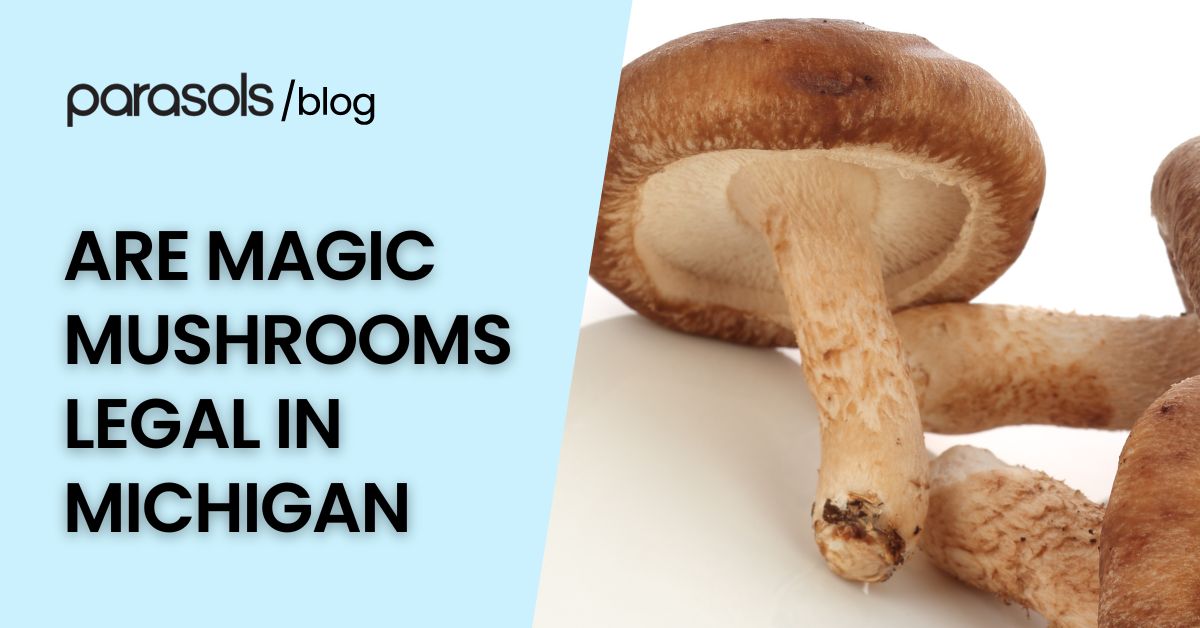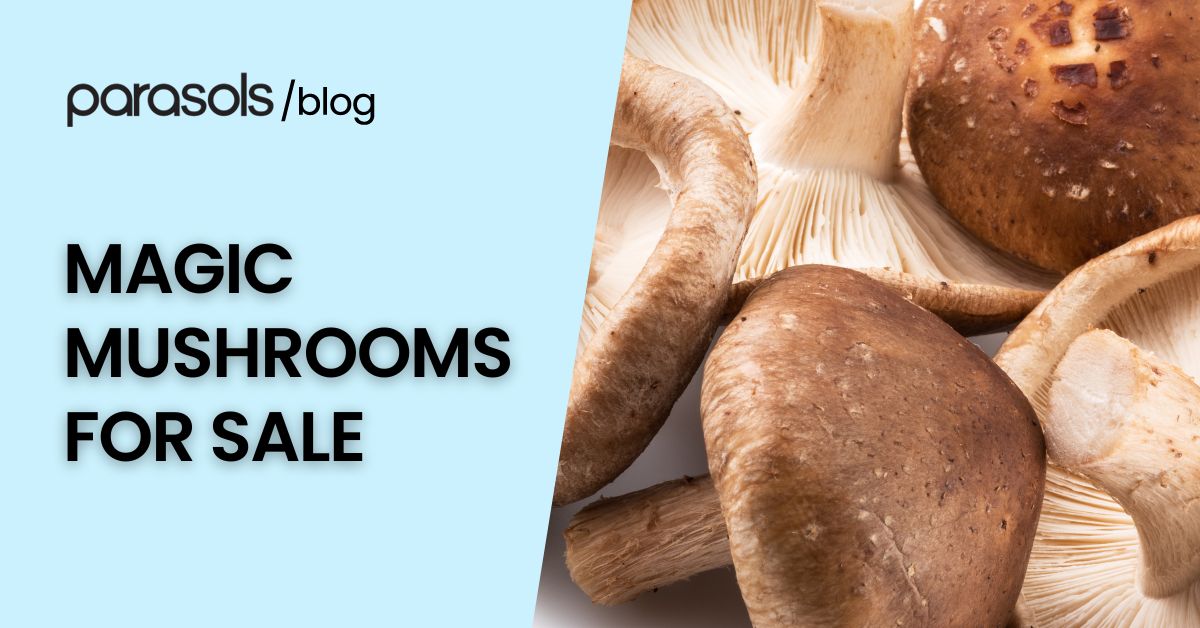For many Michiganders curious about the evolving landscape of natural psychedelics, questions about the legal status of magic mushrooms are becoming increasingly common. Here's a quick, clear look at Michigan's legal framework and how it compares to the broader national picture.
Understanding Psilocybin Mushrooms
Psilocybin mushrooms, often called magic mushrooms or psychedelic mushrooms, are a type of entheogenic fungi known for their psychoactive effects. The compound psilocybin, once ingested, is converted into psilocin, which interacts with serotonin receptors in the brain and can produce altered states of consciousness, sensory enhancement, and introspective experiences.
Long used in spiritual and religious rituals, psilocybin has recently drawn attention in medical research for its potential therapeutic benefits in treating mental illnesses like depression, anxiety, and post-traumatic stress disorder.
Are Magic Mushrooms Legal in Michigan?
Under Michigan law, psilocybin mushrooms are still classified as a Schedule I controlled substance, making their possession, sale, or cultivation illegal at both the state and federal level. However, several Michigan cities—such as Ann Arbor, Detroit, Hazel Park, and Ferndale—have passed measures to decriminalize certain entheogenic plants and fungi, including psilocybin.
These local efforts often prioritize other public safety concerns, effectively making personal use and possession of psychedelic substances the lowest law enforcement priority. It's important to note that these changes do not legalize psilocybin statewide, and legal risks remain outside city limits.
Current Laws Surrounding Magic Mushrooms in MI

A number of local initiatives have altered how law enforcement approaches psilocybin and related entheogenic plants—but state and federal laws remain unchanged. Below are the key legal aspects to understand:
Local Decriminalization Efforts
Several Michigan municipalities, including Ann Arbor, Detroit (via Proposal E), Hazel Park, Ferndale, Ypsilanti, and Washtenaw County, have adopted resolutions or ordinances that direct authorities to treat personal possession and use of psilocybin mushrooms and other psychedelic plants and fungi as the lowest law enforcement priority. These measures reflect growing voter support and acknowledgment of potential therapeutic benefits and public safety considerations.
State Law Status
At the state level, psilocybin mushrooms remain classified as a Schedule I controlled substance under Michigan law. This means they have no accepted medical use and carry a high potential for abuse. As a result, possession, cultivation, and distribution are illegal and subject to criminal prosecution in jurisdictions without local decriminalization policies.
Federal Law Implications
Under the federal Controlled Substances Act, psilocybin is also classified as Schedule I. State efforts to decriminalize these mushrooms do not override federal statutes, and the Drug Enforcement Administration retains the authority to enforce federal law anywhere in the state, regardless of local priorities.
Therapeutic and Scientific Context
The renewed focus on psychedelic medicine, backed by clinical trials and research from institutions like the UC Berkeley Center, highlights psilocybin’s potential in treating conditions such as post-traumatic stress disorder, depression, and anxiety. Despite this momentum, legislative adoption at the state or federal level has not yet occurred, and controlled substance restrictions remain in place.
Legal Risks in Practice
Even in cities with lowest-priority policies, penalties can still apply if other charges are involved or if federal agencies intervene. Outside city limits where local measures don’t apply, individuals face full state-level enforcement. Anyone considering personal use or participating in clinical research should thoroughly understand city limits and carry awareness of local, state, and federal legal frameworks.
Are There Alternative Treatments for Shrooms in MI?
While psilocybin mushrooms remain illegal in most parts of Michigan, several legal and research-supported alternatives are available for those seeking similar therapeutic effects. These options are gaining attention for their mental health applications and clinical results.
- Ketamine-assisted therapy – A legal and medically approved treatment for depression, anxiety, PTSD, and chronic pain. Ketamine is administered under clinical supervision and often paired with psychotherapy for deeper therapeutic outcomes.
- Telemedicine ketamine programs – At-home ketamine therapy is offered by licensed providers who guide patients through preparation, administration, and integration remotely, making access easier across Michigan.
- MDMA-assisted psychotherapy – Although not yet widely available, MDMA is in advanced clinical trials for treating post-traumatic stress disorder and may become an approved therapeutic option in the near future.
- LSD and ibogaine research therapies – These substances are currently under scientific study for their potential in treating addiction and mood disorders. Participation is typically limited to regulated clinical trials.
- Guided psychedelic sessions (unregulated) – Some individuals choose to work with facilitators who offer preparation and integration support around the use of entheogenic substances. While the substances remain illegal, these sessions focus on safety and intentional use.
Consequences for Breaking Magic Mushroom Laws in Michigan
While some cities have relaxed their stance on entheogenic plants, violating state or federal laws involving magic mushrooms can still result in serious legal and personal consequences.
- Criminal charges for possession – Being caught with psilocybin mushrooms in areas without decriminalization policies can result in misdemeanor or felony charges, depending on the amount. Penalties may include fines, probation, community service, or jail time.
- Enhanced penalties for distribution or cultivation – Selling, sharing, or growing psychedelic mushrooms is considered a more serious offense. These actions often result in felony charges that carry longer prison sentences and larger fines.
- Federal enforcement risk – Despite local policies, psilocybin remains illegal under federal law. The Drug Enforcement Administration can intervene, and federal convictions may lead to harsh penalties, including lengthy prison terms for trafficking.
- Limitations of local decriminalization – Cities like Ann Arbor or Detroit may have deprioritized enforcement, but these policies do not legalize mushrooms. State police and prosecutors can still act, and individuals may still face charges if other factors—like intent to distribute—are involved.
- Collateral consequences – A conviction related to controlled substances can affect housing eligibility, employment opportunities, immigration status, student financial aid, and the ability to travel internationally.
Final Thoughts

Michigan’s legal stance on psilocybin mushrooms remains complex, shaped by a patchwork of local decriminalization efforts and overarching state and federal laws. While some cities have shifted toward more progressive approaches, legal risks are still very real—especially outside city limits or in situations involving distribution or cultivation.
As scientific research and public opinion continue to evolve, staying informed is key. If you're studying natural psychedelics for personal or therapeutic reasons, make sure you understand your rights, responsibilities, and the current legal framework in your area. For those interested in alternative therapies or simply understanding their rights, continuing to monitor legislative updates and credible research can provide valuable clarity and guidance.
Frequently Asked Questions
Can you be arrested for having magic mushrooms in your home in Michigan?
Yes. If law enforcement outside of a decriminalized city finds psilocybin mushrooms in your possession at home, you could face arrest and prosecution under state or federal controlled substance laws.
Are magic mushroom spores legal in Michigan?
Mushroom spores that do not contain psilocybin are legal to possess in Michigan for research or educational purposes. However, cultivating them into fruiting bodies that contain psilocybin is illegal.
Can you travel with magic mushrooms within Michigan?
No. Traveling with psilocybin mushrooms, even within decriminalized cities, remains illegal and could lead to criminal charges if discovered by law enforcement.
Is microdosing psilocybin legal in Michigan?
No. Microdosing still involves possession of psilocybin, which is a controlled substance. Even small amounts are subject to the same legal classification as larger quantities.
Are there any licensed therapists in Michigan offering psilocybin therapy?
Not at this time. Psilocybin therapy is not legally available through licensed professionals in Michigan due to its Schedule I status under both state and federal law.
Can I use magic mushrooms for religious or spiritual purposes legally?
There is no explicit legal protection in Michigan for the use of psilocybin mushrooms in religious or spiritual contexts. Unlike certain federally recognized religious exemptions, psilocybin remains illegal for all purposes under state law.
Has Michigan proposed any statewide bills to legalize or regulate psilocybin?
Yes. There have been attempts to introduce legislation through the state legislature and potential ballot measures, but as of now, no statewide law has passed to legalize or regulate psilocybin.
Are minors subject to the same penalties for psilocybin possession?
Minors may face juvenile legal proceedings rather than adult criminal charges, but possession of psilocybin is still considered a serious offense regardless of age.



Leave a comment
This site is protected by hCaptcha and the hCaptcha Privacy Policy and Terms of Service apply.